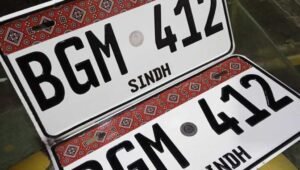

Challenges Faced by Women Drivers in Pakistan and the Road to Change
Women in Pakistan face several barriers when it comes to driving, ranging from social pressure to safety concerns. While driving should be a basic right for all, many women find themselves struggling with stereotypes, harassment, and a lack of support. On this Women’s Day, it is essential to highlight these challenges and explore ways to create a safer and more welcoming environment for female drivers.
Social Pressure and Gender Stereotypes
One of the biggest obstacles for women who want to drive in Pakistan is the cultural belief that only men should be behind the wheel. Many women feel judged and anxious about driving due to societal expectations. They may fear being labeled as “unfit drivers” or criticized by their own families. This discouragement can prevent women from even learning how to drive, creating a cycle where fewer women are on the road, further reinforcing the stereotype that they are not skilled drivers.
Harassment and Unsafe Roads
Harassment is another serious issue. Many female drivers experience verbal abuse, stares, and even reckless driving behavior from others on the road. Some drivers may tailgate, overtake aggressively, or refuse to give way simply because a woman is driving. These incidents not only make driving stressful but also discourage women from driving independently.
In addition, security concerns keep many women from driving at night or in less crowded areas. The fear of car trouble in an unsafe location, combined with a lack of police presence in some regions, makes many women hesitant to drive unless absolutely necessary.
Limited Access to Driving Education
Another barrier is the lack of accessible and supportive driving schools for women. Many driving schools are male-dominated, and some families are reluctant to send their daughters to male instructors. As a result, female learners often seek training from women instructors, but the limited number of female driving trainers creates a bottleneck in their education. Without proper practice and experience, women struggle to gain the confidence needed to drive in Pakistan’s often chaotic traffic conditions.
The Role of Women in Changing Perceptions
While society needs to support women drivers, female motorists also have a role to play in challenging negative stereotypes. Responsible driving, following road rules, and maintaining awareness of traffic etiquette are crucial. Some common driving habits, such as occupying the fast lane while driving at low speeds or failing to use indicators, contribute to the perception that women are not good drivers.
Female scooter riders, for example, sometimes ride at slow speeds in fast-moving traffic, causing frustration among other drivers. Addressing these issues through better driving education and awareness can help counteract the negative image of female drivers.
The Way Forward
A balanced effort from both society and female drivers is necessary to create a safer and more inclusive driving environment. Some key solutions include:
- Stronger Law Enforcement: Authorities must take action against harassment and reckless driving behaviors that target women.
- Better Driving Education: Expanding access to female-friendly driving schools and instructors can help women gain confidence on the road.
- Improved Security Measures: Strengthening police presence and roadside assistance services can make driving safer for women.
- Encouraging Responsible Driving: Women can help break stereotypes by practicing good driving habits and following traffic rules.
By working together, both men and women can help create an environment where female drivers feel safe, respected, and empowered on the road.
Afsheen Gohar is a seasoned writer with a wealth of experience in crafting authentic and well-researched articles. Her dedication to delivering high-quality content is evident in her work, where she combines a passion for storytelling with a commitment to accuracy and depth. Afsheen’s writing reflects her ability to engage readers with compelling narratives while providing valuable insights on a diverse range of topics.
Add a comment Cancel reply
Categories
- Auto News (946)
- Bike Launches (25)
- Car Launches (55)
- Car Prices (35)
- Car Reviews (9)
- Easy Installments (69)
- Electric Vehicle (51)
- Electronic Bikes (41)
- Motorcycle Prices (9)
- Motorcycle Reviews (7)
- Other News (39)
- Uncategorized (43)
Recent Posts
Popular Tags
Related posts


ELFA & Bykea Team Up to Electrify Pakistan’s Gig Economy

Punjab Increases Vehicle and Motorcycle Transfer Fees by 10%

NDMA Issues Landslide Alert for Gilgit-Baltistan and AJ&K Amid Heavy Rain Forecast
Welcome to Auto Power, Pakistan’s premier destination for motorcycles, scooties, and electric bikes. Additionally, our website keeps you updated with the latest news from the auto sector, ensuring you stay informed about the newest trends, releases, and advancements in the industry.
- Shop No 05 & 06, Ruby Arcade, A.M.20, Frere Road/Off Akbar Road, Karachi.
- Shop Timings 11:00 AM to 8:30 PM
- 0322-2578859 | 021-32717777
- sales@autopower.com.pk
- Shop No 05 & 06, Ruby Arcade, A.M.20, Frere Road/Off Akbar Road, Karachi.
- (+92) 322-2578859
- sales@autopower.com.pk
Latest News
- All Posts
- Auto News
- Bike Launches
- Car Launches
- Car Prices
- Car Reviews
- Easy Installments
- Electric Vehicle
- Electronic Bikes
- Motorcycle Prices
- Motorcycle Reviews
- Other News
- Uncategorized






© 2025 AutoPower All Rights Reserved.






